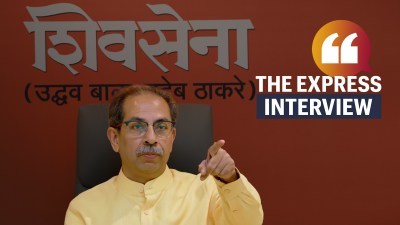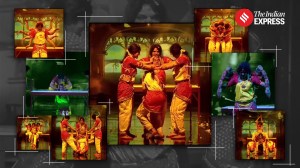- India
- International
How Japanese sci-fi anime Akira became a global pop-culture phenomenon
Ahead of the Tokyo Olympics, a look at how Katsuhiro Otomo's cult anime foretold the work's enduring impact on sports and cinema
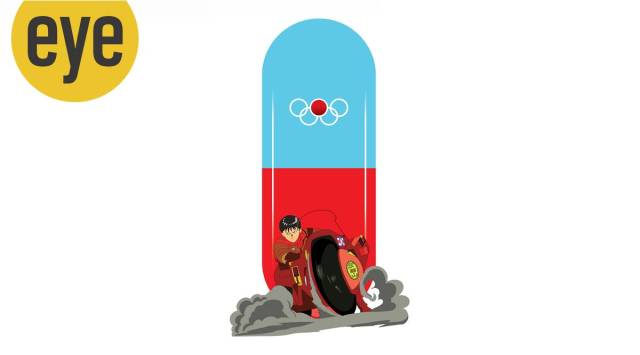 Illustration: Bivash Barua.
Illustration: Bivash Barua.When Tokyo was awarded the Olympics in 2013, film buffs across the world were least surprised. They had seen it coming since 1988.
More than three decades ago, Akira – the influential science-fiction animation film by Japanese artist Katsuhiro Otomo – had predicted that the 2020 Olympic Games would take place in Neo-Tokyo, the film’s reimagination of the Japanese capital. The Olympic grounds in the movie house military bases. And Akira, the titular, telekinetic child, is imprisoned in a cryogenic chamber below the Olympic Stadium, the site of the film’s climax.
In Akira, the Olympics are crucial to Neo-Tokyo as a symbol of recovery from the nuclear trauma of “World War III”. Otomo was alluding to the atomic bombings of Hiroshima and Nagasaki during World War II and Japan rebounding with the 1964 Olympic Games. But by tapping into the zeitgeist and presenting a vision of the future, Otomo foresaw a lot more. He has repeatedly stated that Akira was a product of his deep fascination with manga comics since his childhood and his homage to postwar Japan- “a tragedy depicting people destroying the world’s balance amid this era that I wanted to recreate”.
In a 2019 video interview with publisher Kodansha, Otomo, now 67, said, “Looking at the world now, I wonder how it wound up like this… Looking at issues like wars/conflicts and organised crime, I can feel the world slowly fall out of balance, and I hope we can improve on that.” A scene from the film shows a countdown clock at “147 days until The Games:, with a message: “With everyone’s effort, let’s make this a success.” Underneath the sign, there is a graffiti – “Chuushi da chuushi!” – “Just cancel it!”. The frame made the rounds during the COVID-19 outbreak in Japan just before the original opening date of the Olympics last year. “Just Cancel It” was the top trend on Japanese Twitter and has since become a rallying cry against the Olympic Games, scheduled to begin on July 23.
#中止だ中止
今日かAKIRAと同じ日なんですねぇ
競技場蒸発しそう pic.twitter.com/YtZEpNdsDR— 下等労働者こせき@黄身だけを愛してる (@egg68389419) February 28, 2020
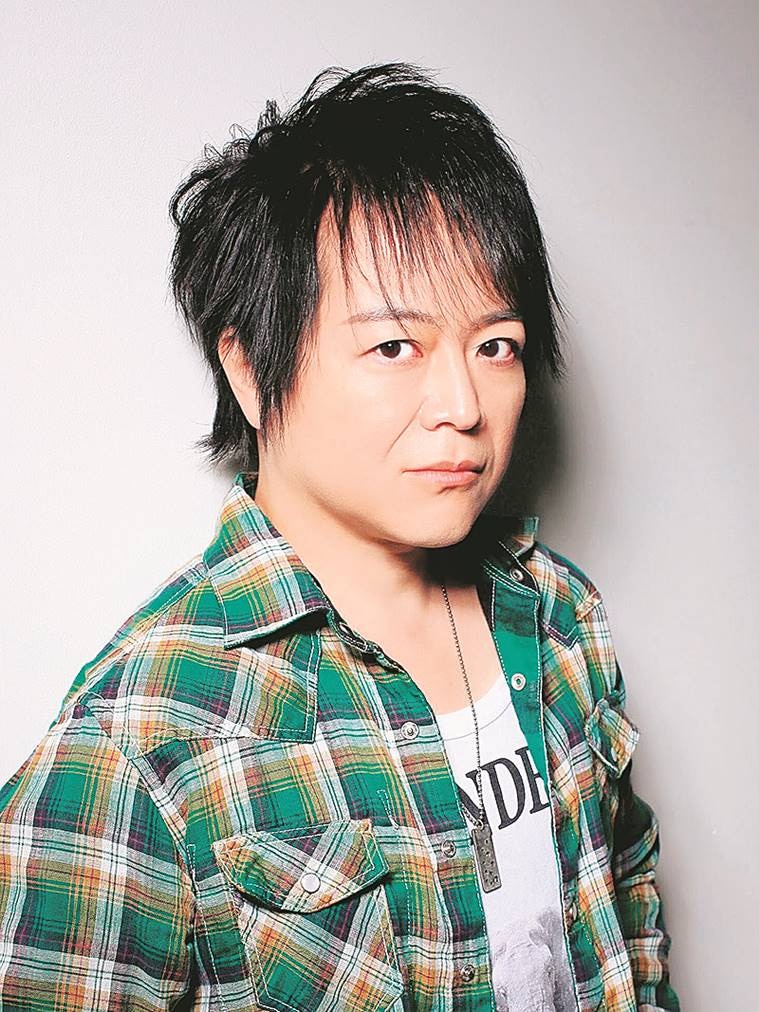 Oral history: Nozomu Sasaki, who was the voice of the antagonist, Tetsuo Shima, in Akira
Oral history: Nozomu Sasaki, who was the voice of the antagonist, Tetsuo Shima, in Akira
Did Otomo really predict the future through Akira? Nozomu Sasaki, who voiced the antagonist Tetsuo Shima in the film, wants to know, too. “That is what I would like to ask him myself!” Sasaki says in an email interview. “Now it has become almost impossible to talk about Akira without mentioning some striking similarities between the film and what is happening in the real world.”
Even before the pandemic, Akira’s dystopia resonated with the world. Prominent themes of the film include attacks on press freedom, religious extremism, bureaucratic corruption, police brutality, the struggle between haves and have-nots and anti-government demonstrations. “Whether it is a coincidence or not, I think these predictions come from the vision, skill, and creativity of Mr Otomo,” says the 54-year-old Sasaki, who debuted in Akira and has since gone on to voice characters from popular anime series such as Naruto (1999-2014), Death Note (2006-07) and Monster (2004-05). “That makes Akira all the more profound.”

Think of your favourite sci-fi film and know that it owes a debt to Akira. Each element of the film – from the neon-lit imagery, the moody, experimental soundtrack to the signature jacket and bike of protagonist Shotaro Kaneda – has become a fixture in cyberpunk iconoclasm. Inspired by Ridley Scott’s Blade Runner (1982) and Steven Lisberger’s Tron (1982), Otomo’s Akira manga ran from 1982 to 1990, spanning over 2,000 pages and laying the foundation for the animated adaptation and all future sci-fi blockbusters.
Akira’s influence can be seen all over The Wachowskis’ 1999 magnum opus The Matrix. Rian Johnson (writer-director, Looper, 2012) and, more recently, the Duffer Brothers (executive producers, Stranger Things, 2016-) have listed it as an inspiration, too. Film critic Roger Ebert wrote of Akira: “The animation was state of the art, the vision was bleak, the tone was a radical departure for American audiences raised to equate animation with cute animals and fairy tales.” Musicians Michael Jackson and Kanye West made music videos based on sequences from the movie; the latter has also based his clothing line on Akira and calls the film his “biggest creative inspiration”.
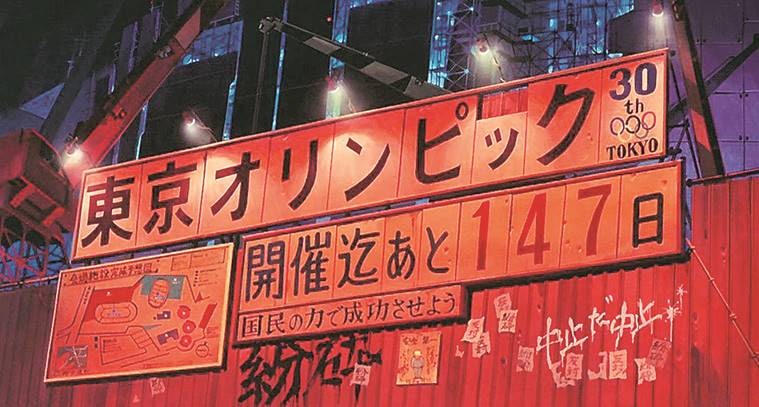 Crystal gazing: In the run-up to Tokyo 2020, the graffiti “Chuushi da chuushi!” became a rallying cry to postpone the Games because of the pandemic.
Crystal gazing: In the run-up to Tokyo 2020, the graffiti “Chuushi da chuushi!” became a rallying cry to postpone the Games because of the pandemic.
“The dialogues were recorded little by little for almost two years and director Otomo was present at all of the sessions. For me, who had just made my debut, it was a very valuable and thrilling experience to be able to act with no screen limitations, with Mr. Otomo letting us voice actors decide how to act,” Sasaki says. “Mitsuo Iwata (who voiced protagonist Kaneda) and I were young and full of motivation, both were serious about this work, and neither of us wanted to act mediocre. Like Kaneda and Tetsuo, we were good rivals, and through all of those times, we actually became very good friends.”
In December 2020, a 4K restoration of Akira was released, completing the saga’s journey from paperback to VHS to laser discs to VCDs/DVDs and now Blu-ray. A live-action adaptation, however, is a frontier unconquered. Warner Bros beat rivals Sony Pictures for the rights in 2002, but the project has not taken off since. Leonardo DiCaprio has been attached as a producer for ages. Leonardo DiCaprio has been attached as a producer for ages. Christopher Nolan was once rumoured to helm the project. In 2017, Oscar-winner Jordan Peele told Collider, “Akira is one of my favorite movies, and I think obviously the story justifies as big a budget as you can possibly dream of,” before dropping out. Thor: Ragnarok and Jojo Rabbit director Taika Waititi was finally signed before the project was put on hold in 2019. “I think eventually it will happen. I’m just not sure if I’ll be doing it,” Waititi told Variety.
A large section of fans believe Akira’s vision and art simply cannot be replicated in live action. “It’s unlike any other anime. Quite a number of productions have been influenced by this masterpiece, but no one seems to have caught up with it. The film transcends the genre with its creativity,” says Sasaki.
Akira’s influence extends beyond art and spills over on turfs and tracks. It has spawned biker clubs around the world. Motorsports too have used the imagery to drum up interest before Japanese races. In 2018, before the Suzuka GP, Red Bull F1 team released a poster paying homage to Akira’s.
Expectedly, Akira was part of the Olympic celebrations. In 2017, videos emerged of a projection-mapping display at the Tokyo Metropolitan Government Building, or Tocho. The installation featured scenes of Kaneda cruising the streets of Neo-Tokyo on his bike, with videos of real-life Tokyo spliced in.
Earlier this year, Japanese magazine Shukan Bunshun reported on a 280-page scrapped proposal for the Olympic opening ceremony. One of the pictures posted by the publication features Kaneda’s bike circling Neo-Tokyo. The leaked proposal reportedly was prepared by award-winning choreographer Mikiko, who also put together Japan’s segment at the Rio 2016 closing ceremony, where then-Prime Minister Shinzo Abe turned up as Nintendo mascot Mario.
Expect that cute Italian plumber from the video games to be featured at the opening ceremony more prominently than Akira and its loaded messages. Last February, Kyoto University students replicated the Akira countdown billboard in protest. The calls of ‘Just cancel it’ have only grown louder.
Replica of a scene in Akira depicting the cancellation of Tokyo Olympics spotted at Kyoto university. https://t.co/5bNlXft8Cx pic.twitter.com/e6yavKmdqN
— hardmaru (@hardmaru) March 5, 2020
In May, with Japan in the grip of a fourth COVID-19 wave, a survey run by The Asahi Shimbun newspaper found that 83 per cent of people wanted the Olympics to be postponed or scrapped. A petition with 350,000 signatures seeking cancellation was handed to the Tokyo governor. The national doctors’ union aired their concerns over the Games becoming a super-spreader event. On July 23, as the Games begin, it will be in empty stadiums, as a renewed threat of the virus has forced Tokyo into a state of emergency, that will run throughout the Games.
“To tell the truth, I don’t see the point why the Olympics are being held,” Sasaki says. “despite repeated warnings by medical experts and the growing public opposition in the current state of the pandemic.”
x-x-x
Aside from graduating from Tokyo University in law at the age of 53, life hasn’t changed much for Sasaki, who has continued to do voiceover work from home. He has been studying English and — after reading Roman philosopher Seneca’s ‘On the Shortness of Life: Life Is Long if You Know How to Use It’ — has taken up Latin too.
Watching movies remains a pastime and ‘3 Idiots’ and ‘English Vinglish’ are often on repeat. Sasaki, who plans to start learning Vedic mathematics soon and adores Indian food for its “rich flavour”, says the soft corner for India stems from the nation’s support in the aftermath of the magnitude-9.0 earthquake and tsunami that devastated Japan’s northeastern coast ten years ago and triggered a nuclear crisis.
“As a Japanese, I would like to take this opportunity to express my appreciation and huge thank you to the people of India for their kind support, following the earthquake and tsunami in 2011,” says Sasaki. “That includes providing relief supplies such as tons of woollen blankets and clothing, as well as for sharing the grief with us.”
The conversation then veers back to Akira, Otomo’s allusion to the nuclear-tinged trauma in the film and the Olympics. Sasaki isn’t sure if he’ll be watching the Games.
“It makes me uneasy to think that we might have passed the point of no return and are in a damned-if-we-do, damned-if-we-don’t situation,” Sasaki says. “I have loved watching the Games, but probably not now, during this public health emergency.”
But unlike the oft-dissected ambiguous conclusion to Akira, Sasaki ends the conversation on a hopeful note.
“Having said that, I definitely believe that sports have the power to entertain, to inspire and to unify people from all walks of life, even amid the challenging times.”
Apr 20: Latest News
- 01
- 02
- 03
- 04
- 05











